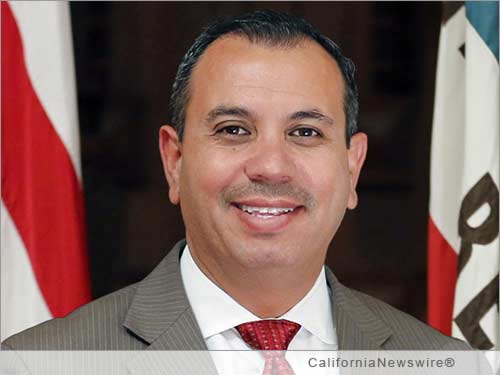
SACRAMENTO, Calif. /California Newswire/ — A groundbreaking bill to develop green space and recreational areas for underserved communities while helping the state achieve its climate change goals has been introduced by Calif. Senator Tony Mendoza (D-Artesia). SB 760 establishes the Disadvantaged Community Enhancement Program which will provide grants to disadvantaged communities from AB 32 Greenhouse Reduction Funds to develop parks and open space.
“Many California communities lack the resources to address environmental degradation. SB 760 will create a grant program funded by cap-and-trade monies so disadvantaged communities can develop parks and open space and turn brown fields green,” said Senator Tony Mendoza.
SB 760 requires the California Strategic Growth Council (SGC) to develop and implement the Disadvantaged Community Enhancement Program to award grants to disadvantaged communities to facilitate projects for community enhancement improvements that reduce greenhouse gas emissions in furtherance of the goals of the California Global Warming Solutions Act of 2006.
In 2008, the SGC was created with a mission to improve air and water quality, improve natural resource protection, increase the availability of affordable housing, improve transportation, encourage sustainable land use planning, revitalize urban and community centers in a sustainable manner.
There is evidence that disadvantaged communities in California suffer disproportionately higher health risks due to their close proximity to freeways and industrial areas. For example, a recent UCLA Luskin study found that residents who live in areas of Los Angeles located in close proximity to freeways, goods movement corridors and industrial facilities, also known as “toxic hot spots” suffer from high rates of asthma, heart disease, and other harmful health impacts, especially for children and the elderly. Another study found that more individuals from these “toxic hot spot” communities die as a result of traffic-related pollution than from traffic accidents. These areas are home to a higher percentage of Latino, African-American, and immigrant families.
“More community enhancement projects are needed to separate and buffer these residential communities and sensitive areas such as schools, day care centers, and health care facilities from polluting industries and reduce their exposure to noise, vibration and emissions caused by high truck volumes from transportation corridors,” said Senator Mendoza.
Certain park poor areas around California have as little as 0.5 acres of park space per 1,000 residents compared to the general standard for parks which is 6 acres per 1,000 residents. When it comes to parks and open space, low-income, heavily Latino communities with large numbers of children have higher people to park ratios and fewer recreational facilities per 10,000 children compared to other groups.
“My bill is a win-win for some of the most deserving communities around the state as well as the environment,” said Senator Mendoza. “It will help the state achieve its goal of reducing global greenhouse gas emissions while helping clean-up blight and create greener and healthier communities.”
“Disadvantaged communities suffer from a lack of park access, lack of access to recreational programs, and a lack of financial resources to develop parks and recreation programs. This contributes to high rates of childhood obesity and other related public health issues,” added Mendoza.
The landmark California Global Warming Solutions Act of 2006, AB 32, mandates that California must reduce Greenhouse Gas (GHG) emission to 1990 levels by 2020. The State Air Resources Board is the state agency charged with monitoring and regulating sources of emissions of greenhouse gases and authorizes it to develop and use market-based compliance mechanisms. The law requires all moneys, except for fines and penalties, collected by the state board from the auction or sale of allowances as part of a market-based compliance mechanism to be deposited in the Greenhouse Gas Reduction Fund and to be available upon appropriation by the Legislature.
Senator Tony Mendoza, a Los Angeles native and former elementary school teacher in East Los Angeles, represents the 32nd Senate District encompassing portions of Los Angeles and Orange Counties. For more information about Senator Mendoza visit his website http://sd32.senate.ca.gov/node/4 .















